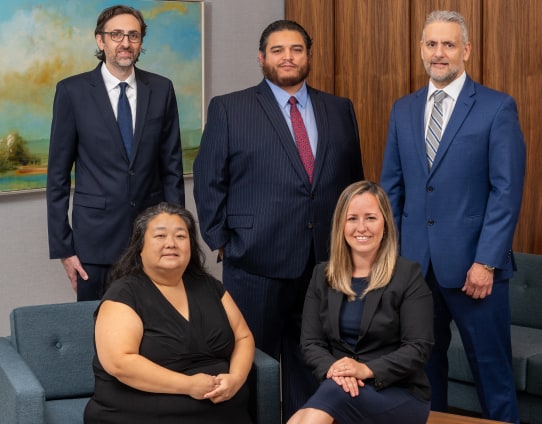Considerations Affecting Minors in Virginia Personal Injury Matters
Several unique points of Virginia law must be taken into account when an individual younger than 18 years of age (usually referred to as a minor or “infant”) is involved in an accident regardless of whether he or she is the tortfeasor (at-fault party) or the injured person.
RESTRICTED CONTRIBUTORY NEGLIGENCE FOR MOST MINORS
First, any minor younger than 7 years of age is incapable of being contributorily negligent. By law, this means that any minor younger than 7 cannot be considered to be partly responsible for any injuries he or she suffers as a result of negligence, regardless of the circumstance. The natural extension and application of this case law are simply that, in general, a minor younger than 7 cannot be legally negligent.
Once a minor is 7 years old or older but younger than 14, the legal principles change. In this age range, there is only a presumption that the minor is incapable of negligence, meaning that although it is assumed that the minor cannot be negligent, it can be proved to be otherwise. As the instructions to a jury may explain, a minor can be found negligent if an attorney can show via some evidence that:
- “… [t]he child had the capacity to understand the nature of the danger and the peril associated with his conduct, taking into consideration the child’s age, intelligence, and experience; and
- “… the child’s conduct did not conform to the standard of what a reasonable person of like age, intelligence, and experience would do under the circumstances for his own safety and protection.”
In one instance, a 10-year-old boy was found negligent based on his own testimony that he knew he could get hurt by jumping on a train. See Norfolk & Portsmouth Belt Line R.R. Barker, 221 Va. 923 (1981).
For a minor between the ages of 14 and 18, the standard is that he or she is judged by how any other reasonable person of the same age, experience, and intelligence would act under those particular circumstances. However, at least one case states that when a minor is operating a motor vehicle, he or she is held to the same standard of care as an adult, regardless of their age. See Thomas v. Settle, 247 Va. 15 (1994).
If you have been injured by the negligence of a minor, we recommend that you consult with an attorney to determine who may be held responsible for your injuries.
LIMITATIONS TOLLED FOR MINORS IN VIRGINIA
If your minor child has been injured by someone else’s carelessness, different considerations exist. In Virginia, you must resolve any claim for personal injury within two years of the incident. If you do not, you must file a lawsuit, or you will lose any right to recover. This is called the statute of limitations.
However, for minors, a special rule exists. The statute of limitations for an injured minor does not begin until the child turns 18. Therefore, he or she will have two years after turning 18 to settle his or her claim or file a lawsuit. See Virginia Code Section 8.01-229. Unique circumstances may affect the statute of limitations, such as a child becoming emancipated, so it is important to consult directly with an attorney about your specific circumstances.
If the parents wish to proceed with a lawsuit or claim, then they may do so at any time before the child turns 18. If the parents paid for medical care, they may file a lawsuit separately or together with the minor’s lawsuit for reimbursement. Even if they do not file a lawsuit, parents are generally permitted to seek reimbursement for any expenses they have paid. See Virginia Code 8.01-36.
It is important to note that outside of the recovery of medical expenses, any judgment or settlement for pain, suffering, or inconvenience belongs to the minor and not the parents. To that end, courts may step in to protect the interests of the minor.
SETTLEMENT APPROVALS
Virginia Code Section 8.01-424 may require that the courts approve any settlement to make sure it is in the best interest of the minor. This usually means that an independent attorney called a guardian-ad-litem (GAL) will be appointed to review the settlement from the perspective of what is best for the minor. Thereafter, the parents, child, and attorneys appear in front of a judge. The judge will review the settlement, ask all attorneys if they agree the settlement is fair for the child, and then speak with the parents and minor. At that point, the judge may approve or reject the settlement.
If a judge approves the settlement, it is still important to note that the money received in a settlement does not generally belong to the parents. This is usually made clear to the parents in one of two ways.
First, a judge may require that the parents place the funds into an interest-bearing account in the minor’s name. The judge will usually advise the parents that the funds should not be used except for the minor’s health, education, and welfare. These needs are usually specific and narrow circumstances. Judges usually give examples of some things that generally do not qualify, like buying the minor a car, taking them to Disney World, or just buying them a computer.
Second, if there is a large settlement, the court may decide that the clerk of the court will hold the funds for the minor until he or she turns 18. Upon turning 18, the minor can appear in court to request that the settlement funds be turned over to him or her.
Again, exceptions and unique circumstances exist in every case. We recommend that you consult with an attorney for legal advice.
You can reach Allan Serrano by calling 410-576-4287


